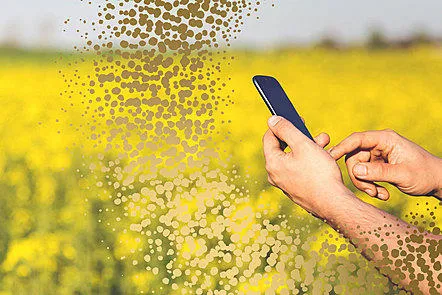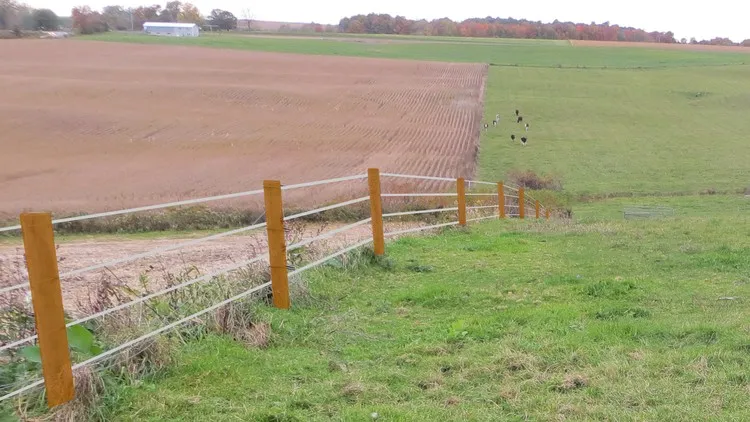
Agricultural Economics - Online Course - FutureLearn 
This online course on Agricultural Economics will help you explore the history of agricultural production and prices, and examine the reasons behind changes in production and prices. You will learn about water availability, peak phosphorus, herbicide resistance, and climate change, and how to evaluate land conservation practices. You will also gain an understanding of the relationship between inputs and outputs, the optimal level of an input, the question of pollution from inputs, and flat payoff functions. This FutureLearn course will help you develop the skills you need to succeed in the field of agricultural economics. ▼
ADVERTISEMENT
Course Feature
![]() Cost:
Cost:
Free
![]() Provider:
Provider:
Futurelearn
![]() Certificate:
Certificate:
No Information
![]() Language:
Language:
English
![]() Start Date:
Start Date:
Self Paced
Course Overview
❗The content presented here is sourced directly from Futurelearn platform. For comprehensive course details, including enrollment information, simply click on the 'Go to class' link on our website.
Updated in [May 25th, 2023]
This online course, Agricultural Economics, provides an exploration into the history of agricultural production and prices, and an examination into the reasons behind changes in production and prices. Participants will develop an understanding of water availability, peak phosphorus, herbicide resistance, and climate change. They will also look at the relationship between inputs and outputs, the optimal level of an input, the question of pollution from inputs, and flat payoff functions. Finally, participants will evaluate land conservation practices, weighing benefits and costs correctly and non-economic factors.
The course is divided into four parts. In the first part, participants will learn about the history of agricultural production and prices, and the reasons behind changes in production and prices. They will also explore the impact of water availability, peak phosphorus, herbicide resistance, and climate change on agricultural production and prices.
In the second part, participants will examine the relationship between inputs and outputs, the optimal level of an input, the question of pollution from inputs, and flat payoff functions. They will also learn about the different types of inputs used in agricultural production, and how to calculate the optimal level of an input.
In the third part, participants will evaluate land conservation practices, weighing benefits and costs correctly and non-economic factors. They will also learn about the different types of land conservation practices, and how to evaluate them.
Finally, in the fourth part, participants will explore the different types of agricultural policies, and how to evaluate them. They will also learn about the different types of agricultural subsidies, and how to evaluate them.
At the end of the course, participants will have a better understanding of the history of agricultural production and prices, and the reasons behind changes in production and prices. They will also have a better understanding of the relationship between inputs and outputs, the optimal level of an input, the question of pollution from inputs, and flat payoff functions. Furthermore, they will have a better understanding of land conservation practices, weighing benefits and costs correctly and non-economic factors, and the different types of agricultural policies and subsidies.
[Applications]
Students who have completed this course can apply their knowledge to a variety of agricultural-related topics. They can use their understanding of agricultural production and prices to analyze the effects of changes in production and prices. They can also use their knowledge of water availability, peak phosphorus, herbicide resistance, and climate change to develop strategies for dealing with these issues. Additionally, they can use their understanding of the relationship between inputs and outputs, the optimal level of an input, the question of pollution from inputs, and flat payoff functions to make informed decisions about land conservation practices.
[Career Paths]
1. Agricultural Economist: Agricultural economists analyze the production and distribution of food and fiber, and develop strategies to improve the efficiency of agricultural production. They also study the economic aspects of environmental issues, such as water availability, peak phosphorus, herbicide resistance, and climate change. This job is expected to grow faster than average in the coming years due to the increasing demand for food and fiber.
2. Agricultural Consultant: Agricultural consultants provide advice and assistance to farmers and other agricultural businesses. They help farmers develop strategies to increase production and efficiency, and advise them on the best practices for land conservation. This job is expected to grow in the coming years due to the increasing demand for agricultural advice and services.
3. Agricultural Extension Agent: Agricultural extension agents provide educational services to farmers and other agricultural businesses. They help farmers understand the latest technologies and techniques, and provide advice on the best practices for land conservation. This job is expected to grow in the coming years due to the increasing demand for agricultural education and services.
4. Agricultural Research Scientist: Agricultural research scientists conduct research to develop new technologies and techniques to improve agricultural production and efficiency. They also study the economic aspects of environmental issues, such as water availability, peak phosphorus, herbicide resistance, and climate change. This job is expected to grow in the coming years due to the increasing demand for agricultural research and development.
[Education Paths]
1. Bachelor of Science in Agricultural Economics: This degree program provides students with a comprehensive understanding of the economic principles and practices that are used to analyze and manage agricultural production and markets. Students will learn about the history of agricultural production and prices, and gain an understanding of the reasons behind changes in production and prices. They will also explore the relationship between inputs and outputs, the optimal level of an input, the question of pollution from inputs, and flat payoff functions. Additionally, students will evaluate land conservation practices, weighing benefits and costs correctly and non-economic factors.
2. Master of Science in Agricultural Economics: This degree program builds on the foundational knowledge gained in a Bachelor of Science in Agricultural Economics. Students will gain a deeper understanding of the economic principles and practices used to analyze and manage agricultural production and markets. They will explore topics such as water availability, peak phosphorus, herbicide resistance, and climate change. Additionally, students will gain an understanding of the economic and social implications of agricultural production and markets.
3. Doctor of Philosophy in Agricultural Economics: This degree program is designed for students who wish to pursue a career in research or academia. Students will gain an in-depth understanding of the economic principles and practices used to analyze and manage agricultural production and markets. They will explore topics such as water availability, peak phosphorus, herbicide resistance, and climate change. Additionally, students will gain an understanding of the economic and social implications of agricultural production and markets. They will also develop the skills necessary to conduct independent research and develop innovative solutions to agricultural problems.
The demand for agricultural economists is expected to grow in the coming years due to the increasing need for sustainable agricultural production and the need to address global food security. Additionally, the development of new technologies and the increasing demand for organic and locally produced food will create new opportunities for agricultural economists.
Course Provider

Provider Futurelearn's Stats at AZClass
Discussion and Reviews
0.0 (Based on 0 reviews)
Explore Similar Online Courses

Affiliate Marketing & Ad Tracking with LinkTrackr

Piano II: Focus on Reading

Python for Informatics: Exploring Information

Social Network Analysis

Introduction to Systematic Review and Meta-Analysis

The Analytics Edge

DCO042 - Python For Informatics

Causal Diagrams: Draw Your Assumptions Before Your Conclusions

Whole genome sequencing of bacterial genomes - tools and applications

Food Chemistry

Food Microbiology

Agricultural Fence Design (NRCS Standard 382)
 Related Categories
Related Categories
Quiz
 Submitted Sucessfully
Submitted Sucessfully
1. What is the main focus of this course?
2. What is the optimal level of an input?
3. What is the relationship between inputs and outputs?


Start your review of Agricultural Economics - Online Course - FutureLearn